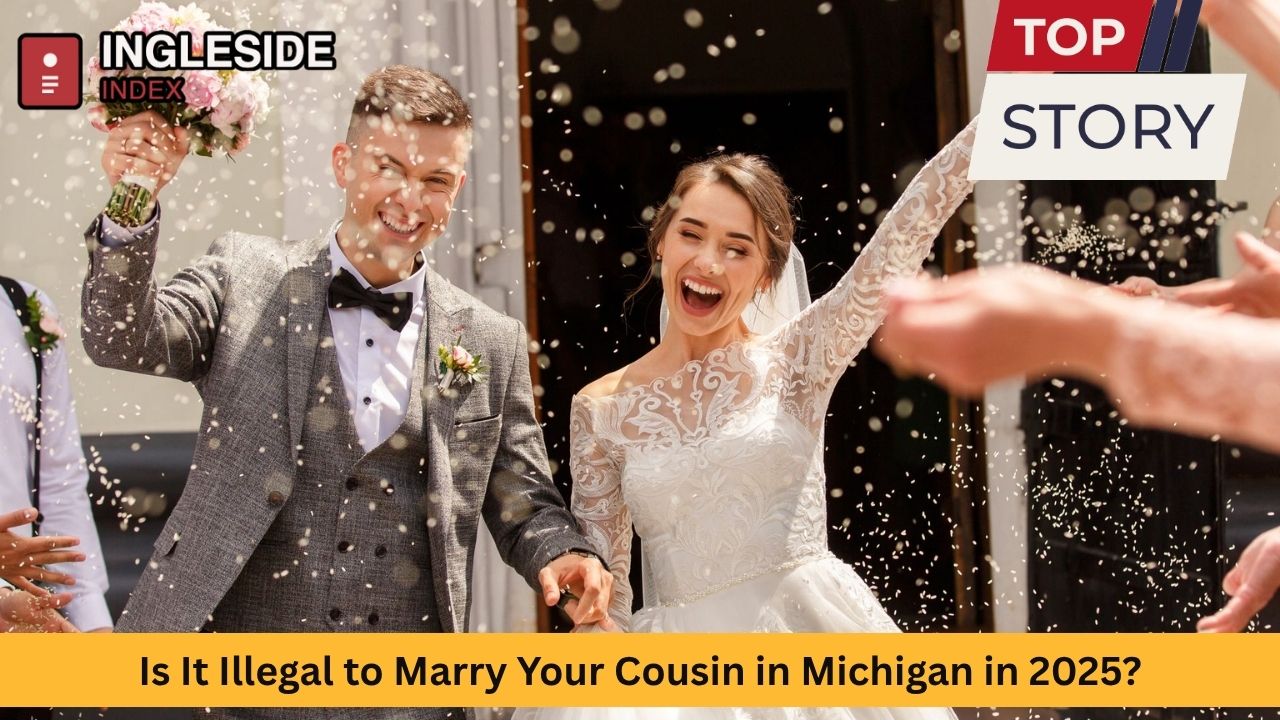Family relationships play a pivotal role in shaping cultures, traditions, and legal frameworks around the world. Across the United States, cousin marriage is a topic that often generates confusion and debate, especially when it comes to state-specific regulations. In Michigan, whether cousins can legally marry is a question that surfaces frequently—particularly among families with ties across different communities in cities like Detroit, Grand Rapids, Ann Arbor, and Flint. Let’s explore the legality of cousin marriages in Michigan as of 2025, address common misconceptions, and provide a detailed guide rooted in current law, cultural context, and key statistics.
Understanding Cousin Marriage Laws in the United States
The regulation of cousin marriage varies significantly state by state. Around the country, laws diverge, influenced by social, religious, and historical attitudes:
-
Some states allow first cousin marriages without restriction.
-
Others prohibit them entirely.
-
A handful of states impose conditions, like requiring genetic counseling or imposing age limits.
-
Laws are also different for more distant cousins, such as second or third cousins.
This patchwork of legislation can lead to confusion, especially as communities in border regions or with diverse populations interact and intermarry. According to recent statistics, approximately 20% of the global population lives in societies where cousin marriages are common or even preferred, but in the U.S., less than half a percent of marriages are estimated to be between first cousins.
What Does Michigan Law Say About Cousin Marriage in 2025?
In Michigan, the law on cousin marriage is direct and unequivocal when it comes to first cousins. The state’s Marriage Code specifically prohibits marriage between individuals who are closely related by blood, which includes first cousins.
The Legal Text
Michigan’s marriage statutes outline which familial relationships are considered too close for legal marriage. Among the list—alongside parents, siblings, grandparents, and other close relatives—are first cousins. This means that, as of 2025, Michigan does not permit the marriage of two first cousins within its jurisdiction.
What About More Distant Cousins?
While first cousins are not allowed to marry in Michigan, the law is notably less strict for relationships that are a degree further apart:
-
Marriages between second cousins and beyond are not explicitly prohibited.
-
The same applies for “half-cousins” and more distant family connections.
-
These unions are treated just like any other marriage under Michigan law, subject to the usual requirements for age, consent, and civil procedure.
Key Facts: Michigan’s Family Law and Marriage Prohibitions
Understanding the nuances of Michigan’s marriage laws requires looking at the specifics:
| Relationship to Self | Marriage Permitted? |
|---|---|
| Parent, child, grandparent, grandchild | No |
| Sibling, aunt, uncle | No |
| First cousin | No |
| Second cousin or beyond | Yes |
This strict approach reflects broader social attitudes within the state, echoing concerns about potential genetic risks and maintaining clear legal boundaries within families.
The Story Across Michigan: City-by-City Realities
While state law applies equally across Michigan, local communities experience the impact of these rules differently based on demographic factors, cultural norms, and historical immigration patterns.
Detroit
Detroit’s population is among the most diverse in the Midwest, with significant representation from African American, Arab American, and Eastern European communities—each with its own cultural perspectives on cousin marriage. Local courts and family law attorneys in Detroit handle a high volume of marriage license applications and occasionally field questions about cousin marriage, particularly from immigrant communities where such unions might be commonplace in their countries of origin. However, Detroit courts uphold the state’s legal prohibitions without exception.
Grand Rapids
Grand Rapids has seen demographic changes over recent decades, with a growing Hispanic and refugee population. Family support centers frequently provide information in multiple languages regarding Michigan marriage law, noting the state’s position on first cousin marriage and the legal alternatives for couples seeking to formalize relationships.
Ann Arbor
As a university city, Ann Arbor’s population is transient and international, with students and faculty from around the world. University legal clinics often advise on the differences between Michigan law and practices abroad, clarifying that while first cousin marriage may be legal or common in many countries, it remains prohibited in Michigan.
Flint and Lansing
In cities like Flint and Lansing, where traditional family structures remain strong, local government offices emphasize family law education at community events and through public service campaigns, affirming the legal boundaries on prohibited marriages.
Out-of-State and International Cousin Marriages: Recognition in Michigan
A major source of confusion surrounds the status of cousin marriages performed out of state or abroad. Here’s what Michigan residents need to know:
-
If two first cousins marry in a state where such a marriage is legal—for example, in California, Colorado, or New York—and then return to Michigan, the situation becomes legally complicated.
-
Historically, Michigan has invalidated marriages between first cousins performed in Michigan. However, marriages legally performed in another state or country may sometimes be recognized, depending on various legal and social factors.
-
Legal precedent exists where Michigan has, in some cases, honored out-of-state cousin marriages, but this is not absolute. Special circumstances and court decisions play a major role.
Anyone in this situation should consult a Michigan family law attorney for guidance, as outcomes can vary case by case and significant legal consequences may follow.
The Reasons Behind Prohibitions: Genetics, Tradition, and Changing Attitudes
The primary reasons cited for banning first cousin marriage in Michigan are:
-
Concerns about genetic risks to children born of closely related parents
-
Social and cultural taboos rooted in historical and religious norms
-
A legal tradition carried over from 19th-century American reforms intended to standardize family law
Recent genetic research indicates that the risk of birth defects in first cousin offspring, while slightly elevated, is not as severe as once believed. Nonetheless, social opposition remains strong in many communities, including those in Michigan’s urban centers and rural counties alike.
How Common Is Cousin Marriage in Michigan and the United States?
Despite the prohibition in Michigan and many other states, cousin marriages do occur across the country. Nationally, it is estimated that fewer than 0.5% of all marriages are between first cousins. In Michigan, the prevalence is even lower, with most cases involving recent immigrants or families with roots in countries where cousin marriage is part of cultural tradition.
City by city, the numbers are difficult to quantify because cousin marriages are generally not reported or tracked separately in marriage license data. Anecdotal evidence suggests that inquiries often arise in cities like Dearborn—with its large Middle Eastern population—but actual marriage applications remain rare due to both legal obstacles and widespread awareness of the law.
What Happens If Cousins Marry in Michigan Anyway?
If two first cousins were to marry in Michigan, the marriage would be considered void from the outset. That means:
-
The marriage would have no legal effect and could be annulled at any time.
-
Legal recognition for issues like spousal benefits, inheritance, and custody could be denied.
-
It could complicate future legal matters, such as divorce or the legitimacy of children from the union.
In rare instances where a marital relationship is not immediately discovered by authorities—perhaps because the couple lied on their application or married in secret—the risk of future annulment remains high. This risk extends to estate planning, property rights, and child custody.
Exceptions, Nuances, and Grey Areas
Although first cousin marriage is not permitted, Michigan law does allow for some flexibility in the recognition of marriages performed elsewhere. For example:
-
Couples who are second cousins or more distantly related can marry without issue.
-
“Half-cousins”—where the two cousins share only one grandparent—may also be permitted, based on interpretations of the law.
-
Michigan will generally recognize marriages performed in other states or countries between individuals who are legally allowed to marry there, but first cousin unions remain a grey area with no guarantees.
While there are no explicit exceptions in the statutes as of 2025, the legal landscape continues to evolve, particularly as diversity grows in cities like Sterling Heights, Warren, and Kalamazoo.
Cultural Perspectives and Community Responses
Culture, religion, and community values often play a significant role in shaping public opinion on cousin marriage. In cities such as Dearborn and Hamtramck, where immigrant populations hold traditions from South Asia, the Middle East, and Africa, there remains a strong awareness of the differences in legal systems:
-
Religious leaders and family counselors often address the topic in premarital counseling sessions.
-
Community organizations may provide guidance about the risks of pursuing such marriages and the legal consequences in Michigan.
-
Couples sometimes travel to states where first cousin marriage is legal or return to their families’ countries of origin to marry, then seek recognition upon their return.
The Future of Michigan’s Laws on Cousin Marriage
As demographic shifts and new cultural influences take root across Michigan, there have been occasional calls to revisit marriage statutes and bring them into line with genetic science and evolving social norms. For now, however, prohibitions remain in place.
The Michigan Civil Rights Commission and advocacy groups have occasionally discussed reviewing various marriage prohibitions. Still, there is no official movement in the legislature as of 2025 to change the status quo regarding first cousin marriage.
Frequently Asked Questions About Cousin Marriage in Michigan
Can I marry my first cousin in Michigan in 2025?
No, Michigan law explicitly prohibits marriage between first cousins.
Is it legal to marry my second cousin?
Yes, marriages between second cousins and more distant relatives are not prohibited.
What if I marry my cousin in another state and return to Michigan?
The status of such marriages is complicated. Michigan may recognize out-of-state marriages between first cousins, but the law is not absolute, and legal advice is recommended.
Do these laws apply everywhere in Michigan?
Yes, the laws apply equally in all Michigan cities and counties, including Detroit, Grand Rapids, Flint, Lansing, Ann Arbor, and others.
Are there exceptions for religious or cultural reasons?
No, there are no statutory exceptions for religious or cultural practices in 2025.
Can half-cousins marry in Michigan?
The law may be more flexible for half-cousins, but legal advice is strongly recommended to address specific circumstances.
Expert Advice: Navigating Family Law in Michigan
Because marriage is both a personal and legal commitment, anyone considering marriage with a cousin or other close relative in Michigan should consult with a qualified family law attorney. Legal experts can help interpret state laws, explain the consequences of prohibited marriages, and advise on possible alternatives.
Major law firms and legal aid clinics are available for consultations in every Michigan city. Cities like Ann Arbor, Detroit, and Grand Rapids offer specialist family law services, and public legal clinics can often provide free or reduced-cost advice.
Conclusion: What Michigan Residents Need to Know
If you’re considering marriage in Michigan and your prospective spouse is related to you as a first cousin, the law in 2025 is clear: these marriages are not permitted. The prohibition is broad, applies in all Michigan cities, and is rooted in longstanding statutory and social traditions.
For those whose relationship is more distant—second cousins and beyond—there is no legal obstacle to marriage. Anyone outside these categories should always seek legal advice before proceeding, particularly if an out-of-state or international marriage is involved.
Michigan’s landscape is diverse and evolving, but on the question of cousin marriage, the legal framework remains consistent—and anyone seeking clarity should turn to experts in family and matrimonial law for personalized guidance. This ensures that your union, wherever celebrated, stands on firm legal ground both now and in the years to come.
- https://en.wikipedia.org/wiki/Cousin_marriage_law_in_the_United_States
- https://www.legislature.mi.gov/documents/mcl/pdf/mcl-chap551.pdf
- https://fam.state.gov/fam/09FAM/09FAM010208.html
- https://www.legalmatch.com/law-library/article/cousin-marriage-laws.html
- https://collincountymagazine.com/2025/06/25/is-it-illegal-to-marry-your-cousin-in-michigan-heres-what-the-law-says/
- https://www.answers.com/law-and-legal-issues/Is_second_cousin_marriage_OK_in_Michigan
- https://www.michigan.gov/mdcr/news/releases/2025/04/28/mcrc-marriage-decision-april-2025
- https://aadl.org/node/455787
- https://theamm.org/marriage-laws/michigan/763
- https://nearlywed.com/resources/a-complete-outline-of-michigan-wedding-laws/
- https://answers.justia.com/question/2021/06/19/can-two-first-cousins-marry-in-michigan-848720
- https://www.findlaw.com/state/michigan-law/michigan-annulment-and-prohibited-marriage-laws.html
- http://www.legislature.mi.gov/(S(bcsig11tpnulttpkawtkv5xf))/documents/mcl/pdf/mcl-article-i-25.pdf
- https://www.legislature.mi.gov/Laws/MCL?objectName=MCL-551-3
- https://legiscan.com/MI/text/SB0285/id/3231180
- https://www.rnlawgroup.com/691-first-cousin-marriage-under-u-s-immigration-law/
- https://www.washtenaw.org/292/Selected-Michigan-Marriage-Laws
- https://www.legislature.mi.gov/Laws/MCL?objectName=mcl-551-4
- https://casetext.com/statute/michigan-compiled-laws/chapter-551-marriage/subchapter-of-marriage-and-the-solemnization-thereof/section-5513-incapacity-persons-man-prohibited-from-marrying
- https://legiscan.com/MI/text/HB4710/2025




